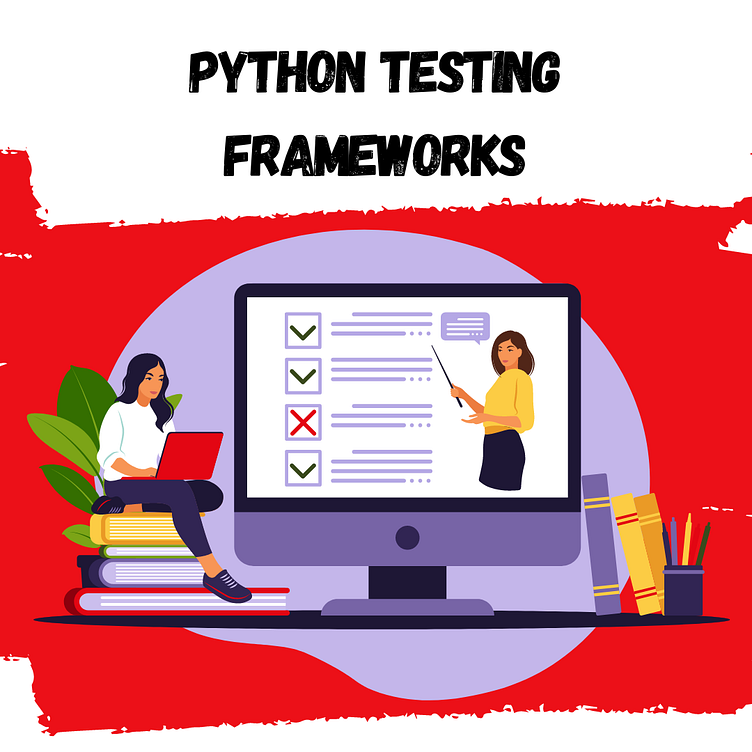Python Testing Frameworks in 2024
Python testing frameworks play a crucial role in ensuring the reliability and quality of Python applications. From unit tests to integration tests and beyond, choosing the right testing framework is essential for developers striving to deliver robust software. In this guide, we'll explore some of the most popular Python testing frameworks and their key features.
unittest:
Overview of the built-in unittest framework in Python.
Explanation of the xUnit-style testing approach.
Features include test discovery, fixtures, and assertions.
Integration with Python's standard library makes it widely used for testing Python codebases.
pytest:
Introduction to pytest, a popular testing framework known for its simplicity and flexibility.
Highlights its extensive plugin ecosystem, which enhances functionality and extends capabilities.
Features include fixtures, parameterized testing, and powerful assertions.
Support for test discovery, test organization, and parallel execution.
nose2:
Overview of nose2, a successor to the nose testing framework, designed to be more Pythonic and extensible.
Highlights its simplicity and ease of use, making it suitable for both beginners and experienced developers.
Features include test discovery, fixtures, and test execution customization.
Compatibility with unittest-style tests and plugins for added functionality.
doctest:
Introduction to doctest, a unique testing framework that extracts test cases from docstrings in Python modules and scripts.
Highlights its simplicity and integration with documentation, making it a valuable tool for testing code examples.
Features include inline testing, automatic verification, and integration with Python's documentation tools.
Hypothesis:
Overview of Hypothesis, a property-based testing framework for Python.
Explanation of property-based testing principles, where tests are generated based on specifications or properties.
Highlights its ability to generate complex test cases automatically, improving test coverage and bug detection.
Features include property-based testing, stateful testing, and integration with existing testing frameworks like pytest.
Conclusion: Python testing frameworks offer a diverse range of options for developers seeking to ensure the quality and reliability of their Python applications. Whether you prefer the simplicity of unittest, the flexibility of pytest, or the unique approach of frameworks like doctest and Hypothesis, there's a framework to suit every testing need. By leveraging these frameworks effectively, developers can streamline the testing process, improve code quality, and deliver robust software solutions.
